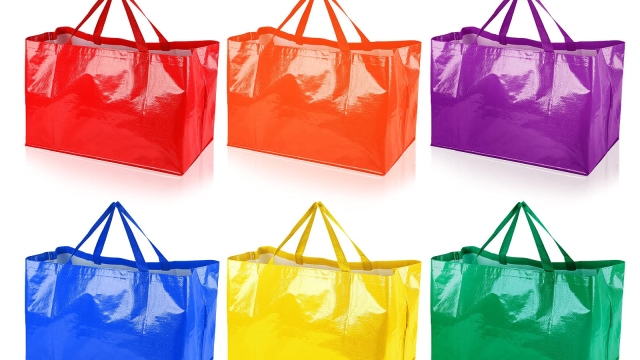
In today’s world, the plastic shopping bag has become a ubiquitous part of our shopping experience. For many, these lightweight, convenient bags are a staple in our daily lives, offering an easy solution for transporting groceries and other purchases. However, lurking beneath the surface of this convenience lies a complex dilemma that raises significant environmental and societal questions. As we navigate the aisles of our local stores, we may not fully grasp the impact of our choices regarding plastic shopping bags.
The rise of awareness surrounding environmental issues has brought the conversation about plastic shopping bags to the forefront. Once hailed for their convenience and durability, these bags are now scrutinized for their contributions to pollution and waste. With millions generated daily, many individuals are beginning to reconsider their role in a world striving for sustainability. Understanding the implications of our dependence on plastic shopping bags is essential in the quest for a greener future, and it is time to unbag the truth behind this common yet controversial item.
Environmental Impact of Plastic Bags
The widespread use of plastic shopping bags has significant environmental consequences. These bags are often used for just a few minutes yet can persist in the environment for hundreds of years. When discarded improperly, they contribute to litter in urban areas and can clog waterways, leading to serious ecological imbalances. Wildlife often mistakes these bags for food, leading to ingestion, which can be fatal and disrupt local ecosystems.
Plastic bags also contribute to the growing issue of microplastics in the environment. When these bags break down, they do not fully decompose but rather fragment into smaller pieces, becoming microplastics. These tiny particles can enter the food chain, affecting not only marine creatures but also the animals and humans who consume seafood. The long-term effects of microplastics on health and the environment remain a pressing concern for scientists and policymakers.
Moreover, the production of plastic bags utilizes fossil fuels and energy, contributing to greenhouse gas emissions. The entire lifecycle of plastic bags, from manufacturing to disposal, can lead to a significant carbon footprint. To mitigate these environmental impacts, many regions are implementing bans or fees on plastic bags, encouraging consumers to switch to more sustainable alternatives. This shift aims not only to reduce litter and pollution but also to promote a culture of environmental responsibility.
Alternatives to Plastic Shopping Bags
As the negative impact of plastic shopping bags becomes increasingly apparent, many people are seeking more sustainable alternatives. One popular option is reusable cloth bags, which are typically made from materials like cotton or recycled fibers. These bags are durable, easy to carry, and can be used hundreds of times, significantly reducing the overall consumption of single-use bags. Many stores now offer these bags for sale, often encouraging customers to bring their own to minimize their environmental footprint.
Another alternative gaining traction is biodegradable bags. These products are designed to break down more quickly than conventional plastic bags when exposed to certain environmental conditions. Made from materials like cornstarch or other plant-based substances, biodegradable bags provide a more eco-friendly option for shopping. However, consumers need to be aware of the conditions required for proper breakdown, as not all biodegradable bags will decompose in typical landfill settings.
For those looking for a creative solution, many people are repurposing items they already have at home, such as tote bags, backpacks, or even old pillowcases. These items can serve as effective shopping bags while reducing waste. Choosing to repurpose not only helps in reducing dependence on plastic shopping bags but also encourages a mindset of sustainability and resourcefulness, showcasing how everyday items can be transformed into practical solutions.
Policy and Consumer Behavior
The relationship between policy and consumer behavior regarding plastic shopping bags is critical in shaping sustainable practices. Many governments have recognized the environmental impact of single-use plastic bags and have implemented measures such as bans or levies. These policies aim to change consumer habits by making the use of plastic bags less convenient or more expensive. As awareness of environmental degradation grows, these regulations encourage individuals to consider alternative options, such as reusable bags, thereby fostering a shift towards more eco-friendly shopping behaviors.
https://www.armopak.com
Consumers often respond to plastic bag regulations in various ways, influenced by cultural attitudes and personal values. In regions with stringent bans, many have adapted quickly, embracing reusable bags as a viable substitute. Offsetting habits takes time, and not all consumers are equally willing to change. However, positive messaging and education about the benefits of using reusable bags can significantly enhance acceptance. Ultimately, consumers who are informed of the ecological consequences tend to show greater support for policies aimed at reducing plastic waste.
Despite these efforts, challenges remain. Some consumers resist change due to convenience, perceived costs, or lack of accessibility to reusable alternatives. Policies that combine regulations with incentives can effectively engage consumers, promoting greater participation in sustainable practices. As more communities engage in the plastic shopping bag dilemma, a collaborative approach between policymakers and the public can drive long-lasting changes in consumer behavior and contribute to a healthier environment.
